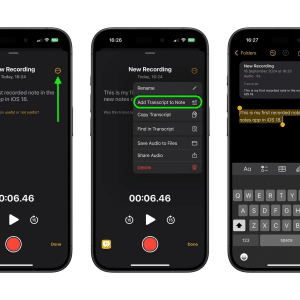New Research Shows Bring-Your-Own Trend Fueling Consumer App Adoption in the Workplace

WOBURN — While tech’s bring-your-own or ‘BYO’ trend is most commonly associated with employee-owned smartphones and tablets entering the workplace, new research released today by LogMeIn (Nasdaq:LOGM) and Edge Strategies sheds light onanother growing aspect of employee-driven tech adoption: the rise and impact of bring-your-own-apps or BYOA. The research found that nearly 70 percent of small and medium businesses (SMBs) report active use of employee-introduced applications, including the likes of cloud sync and storage apps (e.g. Cubby, Dropbox, SkyDrive), collaboration apps (join.me, Skype, GoToMeeting), productivity apps (Google Docs, Evernote), and social apps (Yammer, LinkedIn). More than a third of SMBs surveyed feel this trend will increase significantly over the next five years. And in spite of security and management concerns — only 22 percent of SMB IT pros indicate they are fully prepared to handle BYOA and 43 percent are concerned with lack of control over these apps — most SMB IT pros expect their policies to increasingly embrace and encourage the use of such apps over the next couple years.
The survey included findings from roughly 1,200 U.S., Canadian, UK, Australian and New Zealand-based SMBs, and covered how applications were first introduced to the workplace (employee-introduced vs. company introduced), current and expected IT policies around BYOA, various approaches to managing and securing such apps, as well as the expected impact such a change will have on skill sets required of tomorrow’s SMB IT Pros.
Key findings included:
Adoption of employee-introduced apps is on the rise:
Social, cloud sync & storage apps most likely to enter the workplace via employees — Sixty-nine (69) percent of social apps and 52 percent of cloud sync and storage apps being used within SMBs were originally introduced by employees.
Employee introduced, now company endorsed — Thirty-nine (39) percent of productivity apps and 44 percent of collaboration apps in use at SMBs were first introduced by employees. In both categories, 26 percent of these apps were officially endorsed by the employer.
IT Pros are balancing the risks and the benefits:
Data security, lack of control/management top IT list of concerns, limit adoption — Not surprisingly, 67 percent of SMB IT pros listed data security of apps in the cloud as a primary factor limiting adoption of BYOA, while 43 percent cited lack of control/management as a limiting factor. Other key factors limiting broader growth included lack of integration with corporate applications and systems, as well as industry-specific regulations.
Cloud sync & store apps, in particular, cause security concerns — Of all the app categories in the survey, SMB IT pros are most concerned about security as it relates to cloud sync and storage apps, with 77 percent saying they were concerned or very concerned about security risks.
Most IT leaders find the benefits outweigh the risks — Forty-seven percent of SMB IT pros indicate that BYOA can provide increased flexibility, while 37 percent say BYOA can help discover gaps in the set of apps needed in the workplace
SMBs divided on how to handle these new apps:
BYOA policies vary among SMBs — IT pros and business owners are taking a variety of approaches when it comes to setting policies around employee-introduced apps, with a full 32 percent of SMBs stating that they have no such policy in place. Thirty percent of SMBs say they encourage the use of BYOA, while 22 percent discourage use and 16 percent prohibit such use.
…as does management — When it comes to managing BYOA, 26 percent of SMBs manage these apps through an honor system, 21 percent block certain app sites, while 23 percent don’t manage BYOA at all
BYOA will require changing IT skill sets — Eighty-nine (89) percent of IT pros believe BYOA will demand changes to the required skill set for managing SMB IT environments, and 25 percent predict BYOA will force major changes to the required IT skill set
“As with the BYOD trend before it, we’re seeing an increasing number of businesses embracing the rise of employee-introduced applications entering the workplace, in spite of the inherent security concerns. And like BYOD, the BYOA trend is likely to introduce a fresh set of IT challenges when it comes to managing a relatively unpredictable, heterogeneous environment — a modern workplace reality that blurs the line between devices and data ownership,” said Andrew Burton, senior vice president of products, LogMeIn. “This research makes it fairly clear that there is yet to be an agreed upon way for SMBs to best manage and secure the influx of these apps into the workplace…or the sensitive data created by and shared within them.”
Survey details: Edge Strategies, on behalf of LogMeIn, conducted an online survey in September 2012 of 1,200+ U.S., Canada, UK, Australia and New Zealand-based SMBs (companies with 1,000 or less employees). All respondents were decision makers or influencers of internal IT decisions and represented a wide range of vertical industries including Healthcare, Financial Services, Legal, Retail, Technology, Manufacturing, etc. The survey included LogMeIn customers and non-customers, and was weighted to reflect relative proportions of each in the market. PrimeNewswire









